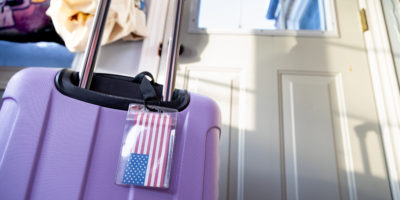By Paul Stark
Canada has no culture. Well, let me rephrase that. Except for Quebec, Canada makes little effort to preserve its culture. Canada can best be described as a huge conglomerate of nationalities, traditions and values, with little more than geography and a passport to define who we are. Where does this leave Canadians in the global scheme of things? It leaves us without an identity, something definite we can take to other countries and proclaim: “This is who we are. This is what we do. These are the things we believe in.”
In the name of peace and intrigue in the exotic, we embrace celebrations like Caribana, the Greek festival, Oktoberfest and the Chinese New Year but come short of actually calling them our own.
There is no doubt that participating in a diversity of cultural celebrations enriches all our lives, but Canadian culture must have its origins and presence in Canada. There is a heritage here — I’m sure a little brainstorming, and certainly some research would reveal a wealth of cultural history — but it does not belong on a shelf in some antiquated history book. It should be incorporated in our everyday life. Unfortunately today, this sentiment seems lost on most Canadians. The idea of maintaining Canadian culture is losing importance and becoming, in the eyes of the general population, politically incorrect.
I’m not a sociologist, but it seems to me that shared traditions, rituals and celebrations have always served at least one important purpose — to create harmony. Culture is not merely a collection of silly little habits. It’s the way we keep peace, and it’s the way we remember our values and morals, and teach future generations about the lessons learned by our ancestors.
Enter Quebec, one of the historical and founding provinces of our country — a magnificent province with a great deal of history and richness of culture. If there is one province in all of Canada that has preserved the essence of what Canada is, surely, Quebec is it. Its citizens are proud of their heritage, holding dear to the roots that have them the strength to survive as a people, to survive as a group. Courage describes the first settlers of Quebec who, isolated from the security of populations and the comfort and support of their families, struggled alone to survive the cold, ruthless, northern winters. Their customs brought them strength and the bonds that grew from their customs brought them harmony, and pride for their accomplishments, in true honourable fashion. Significant historical figures are remembered and honoured through such dedications as St-Jean Baptist day and St. Catherine’s day. Their traditional French-Canadian attire brought them distinction, as did such meals as “tourtiere” and “cipaille.”They ate baked beans and moose meat and partridge and pork. They played hockey, snowshoed and ice fished. Some celebrated St. Catherine’s day by making pull toffee. They celebrated their annual winter carnival with their “Bonhomme carnaval” and produced maple syrup in saphouses they called “cabanes a sucre.” They have such a beautiful culture which they once celebrated with a unique flavour of folkloric storytelling, singing and dancing, and, lest we forget, the “Gigue.” This is what makes French-Canadians who they are. But this is at risk of being lost among populations of new immigrants who show little interest in sharing Quebec’s culture, in the name of preserving their own.
As Canadians, we are among the luckiest people on earth. We are no better, no worse, than any other nation in the world. We are who we are with all the commonalities and beliefs that make us uniquely Canadian — traditions, customs, values, rituals, practices, skills, arts, ideas and beliefs that make us Canadian. Perhaps we could learn from Quebec’s example. Maybe they know the value of identity in a way we don’t understand. Or maybe we just understand it differently. Whatever the case, the French province’s concerns about identity are not unwarranted. Quebec has a belief, and we are now showing them that we understand it. How do they know this? By the example we make.
We are too passive and accommodating. We avoid conflict at all costs. When our cultural integrity is challenged, we don’t defend it (compromising the uniform of Canada’s pride — the Royal Canadian Mounted Police — is one classic example). How can Quebec believe that we understand the importance of their distinctiveness when we don’t understand our own? Can we blame them for their concern of multiculturalism spreading through Quebec and “watering down” their culture? If we could show Quebec that we understand by making an effort to preserve our own culture, I think then and only then would they open the table to discuss unity.
Like a married couple who accepts rather than tries to change each other, French and English Canada would accept each other for who they are. They would work together toward a common vision and preserve all that has helped shape this country into what is undoubtedly one of the finest places to live in all the world. This is where true Canadian pride begins, and in this lies our true identity.
…The day Canada makes a clear and significant effort to preserve and celebrate its identity is the day that Quebec will sit down and discuss federalism.











Leave a Reply